Professional Courses
Industry-relevant training in Business, Technology, and Design
Categories
Interactive Games
Fun games to boost memory, math, typing, and English skills
Typing
Memory
Math
English Adventures
Knowledge
A Guide to the CTET Exam for Aspiring CBSE School Teachers

A Guide to the CTET Exam for Aspiring CBSE School Teachers
Teaching in a CBSE school is a dream for many aspiring educators across India. Beyond subject knowledge, there is one critical requirement for eligibility, the Central Teacher Eligibility Test, better known as the CTET.
Conducted by the Central Board of Secondary Education, the CTET serves as a benchmark to ensure that teachers meet the professional standards needed to teach at primary and upper primary levels. For those aiming to build a successful career in a CBSE-affiliated school, clearing the CTET is often a mandatory first step.
This guide will take you through the CTET in detail, from eligibility and syllabus to preparation tips and exam-day strategies, along with useful links to resources that can help you prepare effectively.
What is the CTET?
The Central Teacher Eligibility Test (CTET) is a national-level examination conducted by CBSE. It aims to certify the eligibility of candidates to teach in central government schools such as Kendriya Vidyalayas, Navodaya Vidyalayas, and other CBSE-affiliated institutions.
The CTET is held twice a year, usually in July and December. Candidates who pass receive an eligibility certificate, which is valid for a lifetime.
Why the CTET Matters for CBSE School Teachers
If your goal is to teach in a CBSE school, CTET is not just a formal requirement; it is proof of your teaching skills and pedagogical understanding.
Benefits of Clearing the CTET
- Mandatory qualification for many CBSE-affiliated teaching positions
- Recognised by both public and private schools under the CBSE umbrella
- Increases employability and career growth prospects
- Builds confidence in your teaching abilities
Even if you are applying to private CBSE schools that do not explicitly require CTET, having the certification adds weight to your application.
CTET Eligibility Criteria
To apply for the CTET, candidates must meet specific academic and professional requirements. These differ for the two levels of the exam:
Paper I: For Classes 1 to 5 (Primary Level)
- Senior Secondary (or equivalent) with at least 50 per cent marks
- Passed or appearing in the final year of a two-year Diploma in Elementary Education
- OR Senior Secondary with at least 45 per cent marks and a two-year Diploma in Elementary Education by NCTE regulations
- OR Senior Secondary with at least 50 per cent marks and a four-year Bachelor of Elementary Education (B.El.Ed.)
- OR Graduation with a two-year Diploma in Elementary Education
Paper II: For Classes 6 to 8 (Upper Primary Level)
- Graduation with at least 50 per cent marks and a two-year Diploma in Elementary Education
- OR Graduation with at least 50 per cent marks and a Bachelor in Education (B.Ed.)
- OR Graduation with at least 45 per cent marks and a B.Ed. by NCTE regulations
- OR Senior Secondary with at least 50 per cent marks and a four-year B.Ed.
Structure of the CTET Exam
The CTET consists of two separate papers:
- Paper I: For candidates who wish to teach Classes 1 to 5
- Paper II: For candidates who wish to teach Classes 6 to 8
Candidates may choose to appear for one or both papers.
Each paper consists of 150 multiple-choice questions, each carrying one mark. There is no negative marking.
CTET Syllabus Overview
While the specific topics vary slightly between Paper I and Paper II, the core focus areas are:
Paper I (Primary Level)
- Child Development and Pedagogy
- Language I (compulsory)
- Language II (compulsory)
- Mathematics
- Environmental Studies
Paper II (Upper Primary Level)
- Child Development and Pedagogy
- Language I (compulsory)
- Language II (compulsory)
- Mathematics and Science (for Science/Math teachers)
- Social Studies/Social Science (for Social Science teachers)
How to Apply for the CTET
The application process is entirely online:
- Visit the official CTET website and read the information bulletin carefully
- Fill in the online application form with accurate details
- Upload scanned copies of your photograph and signature
- Pay the application fee using online payment methods
- Download and save the confirmation page for future reference
Be sure to check the official notification for updated deadlines and fee structures.
Preparation Strategy for CTET Success
Clearing CTET requires both subject mastery and teaching aptitude. Here’s a step-by-step preparation plan:
Understand the Syllabus Thoroughly
Go through the syllabus for your chosen paper. This will help you create a realistic study plan.
Use Quality Study Materials
Opt for trusted CBSE-aligned learning resources. Platforms like Allrounder.ai offer structured courses designed for CBSE exam preparation, which can also be adapted for CTET study.
Practice with Mock Tests
Regular mock tests simulate real exam conditions and improve time management. Explore Allrounder.ai Mock Tests for a range of subject-specific and full-length tests.
Focus on Pedagogy
The pedagogy sections in CTET are crucial. They test your understanding of how children learn and the methods you would use to teach effectively.
Revise Regularly
Make concise notes for quick revision before the exam. Include important definitions, teaching principles, and sample lesson plans.
Common Mistakes to Avoid
- Ignoring the pedagogy section, which holds significant weight
- Overlooking weaker subjects until the last minute
- Practising without time constraints
- Using outdated or unreliable study material
How to Use Online Resources for CTET
With digital platforms, you can access high-quality learning anytime. On Allrounder.ai Courses, you’ll find interactive lessons, quizzes, and teacher-led explanations. You can also visit the Allrounder.ai Resources section for supplementary reading materials.
Tips for Exam Day
- Arrive at the test centre well in advance
- Carry all required documents (admit card, ID proof)
- Read each question carefully before answering
- Manage your time so that you can review your answers
Remember, there is no negative marking, so attempt all questions.
After the CTET
Once you clear the CTET, you will receive an eligibility certificate from CBSE. This certificate:
- Has lifetime validity
- Qualifies you to apply for teaching posts in CBSE-affiliated schools
- Enhances your professional profile
Many private schools also prefer candidates with CTET certification, even if it is not mandatory.
Career Path After CTET
Clearing CTET opens doors to various opportunities:
- Teaching in Kendriya Vidyalayas
- Teaching in Navodaya Vidyalayas
- Teaching in central government schools under CBSE
- Better prospects in private CBSE schools
Pairing CTET certification with advanced teaching credentials and subject mastery can accelerate your career growth.
Final Thoughts
The CBSE CTET is more than just an exam; it is a professional milestone for aspiring teachers. Preparing for it requires commitment, quality resources, and consistent practice. Use structured learning platforms like Allrounder.ai to build your knowledge, test your skills with mock exams, and stay ahead of the competition.
Clearing CTET is the beginning of a rewarding career in education, and with the right guidance, you can step confidently into a CBSE classroom as a qualified and respected teacher.
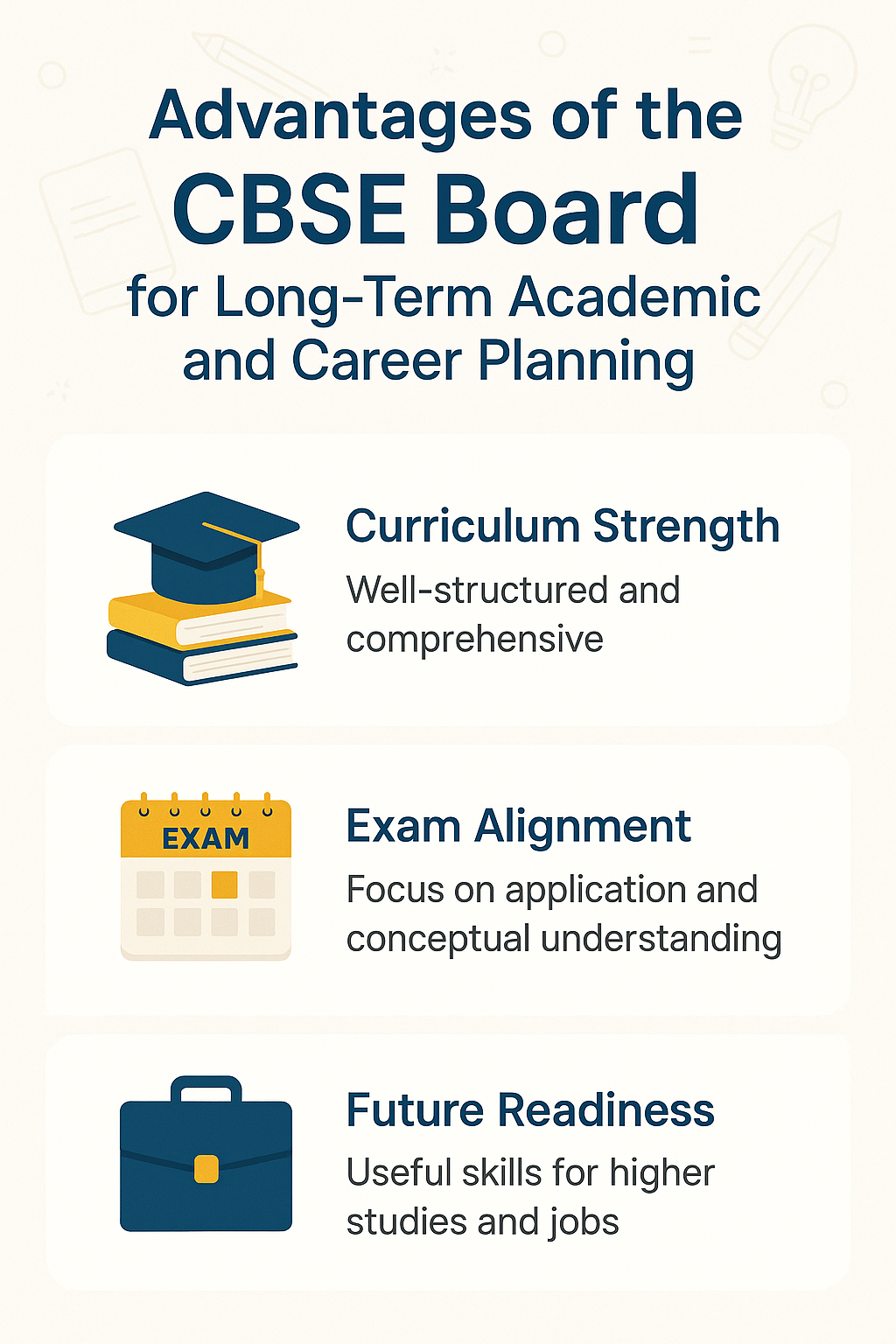
Discover the advantages of the CBSE board for long-term academic and career planning, including curriculum strength,...
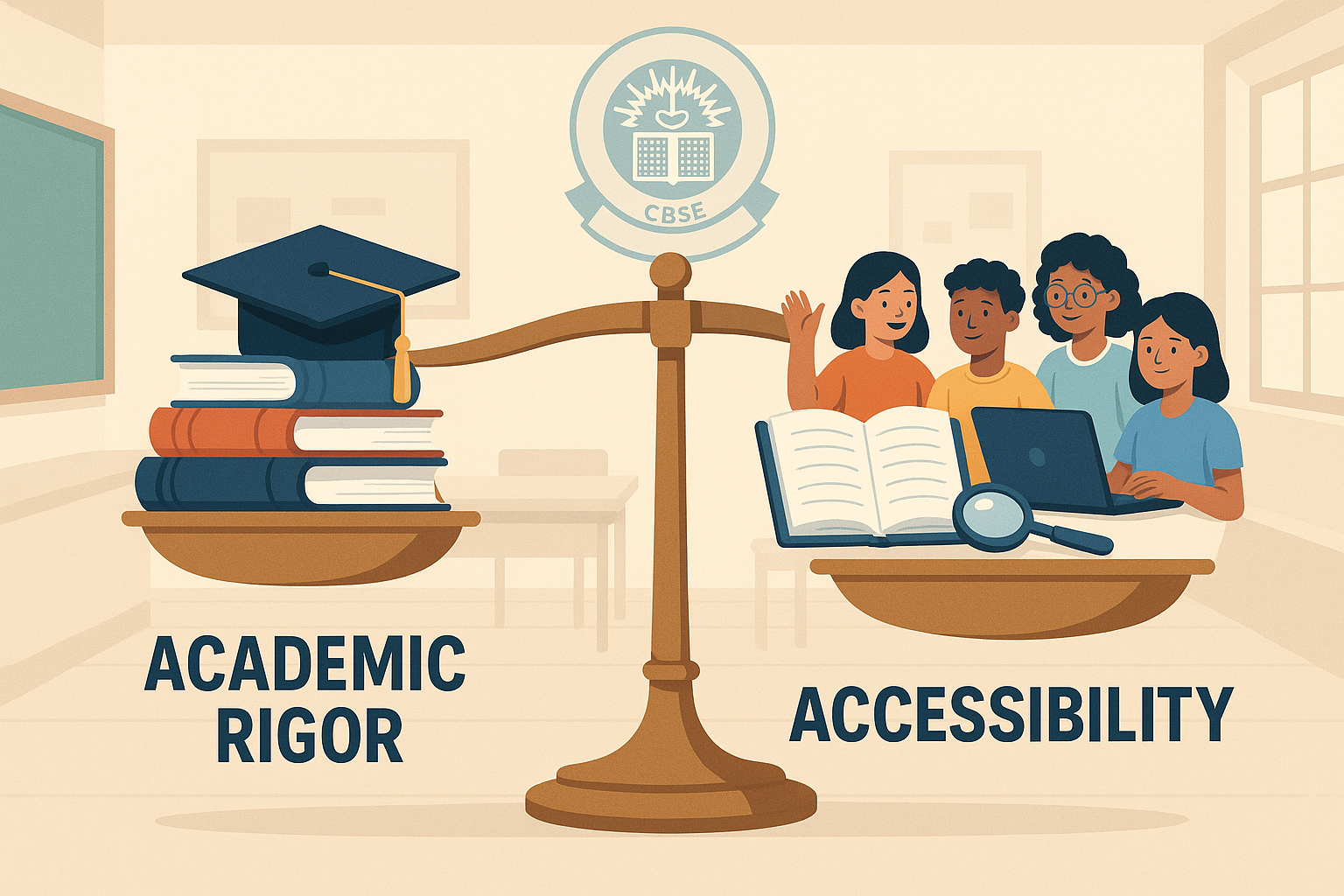
Explore how the CBSE board balances academic rigor and accessibility through its curriculum, syllabus, exams, and...
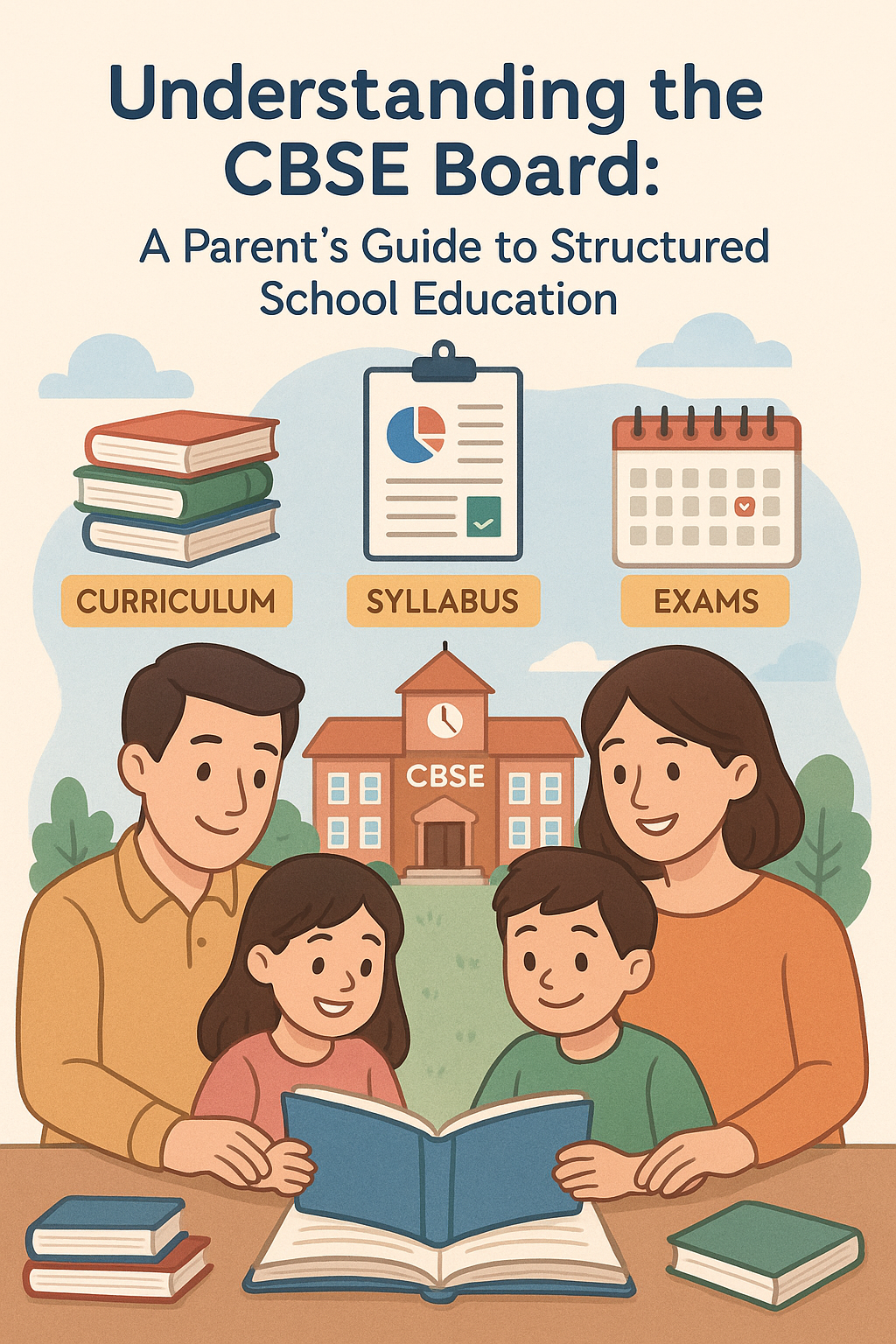
A complete parent’s guide to understanding the CBSE board, its curriculum, syllabus, advantages, exam structure, and...
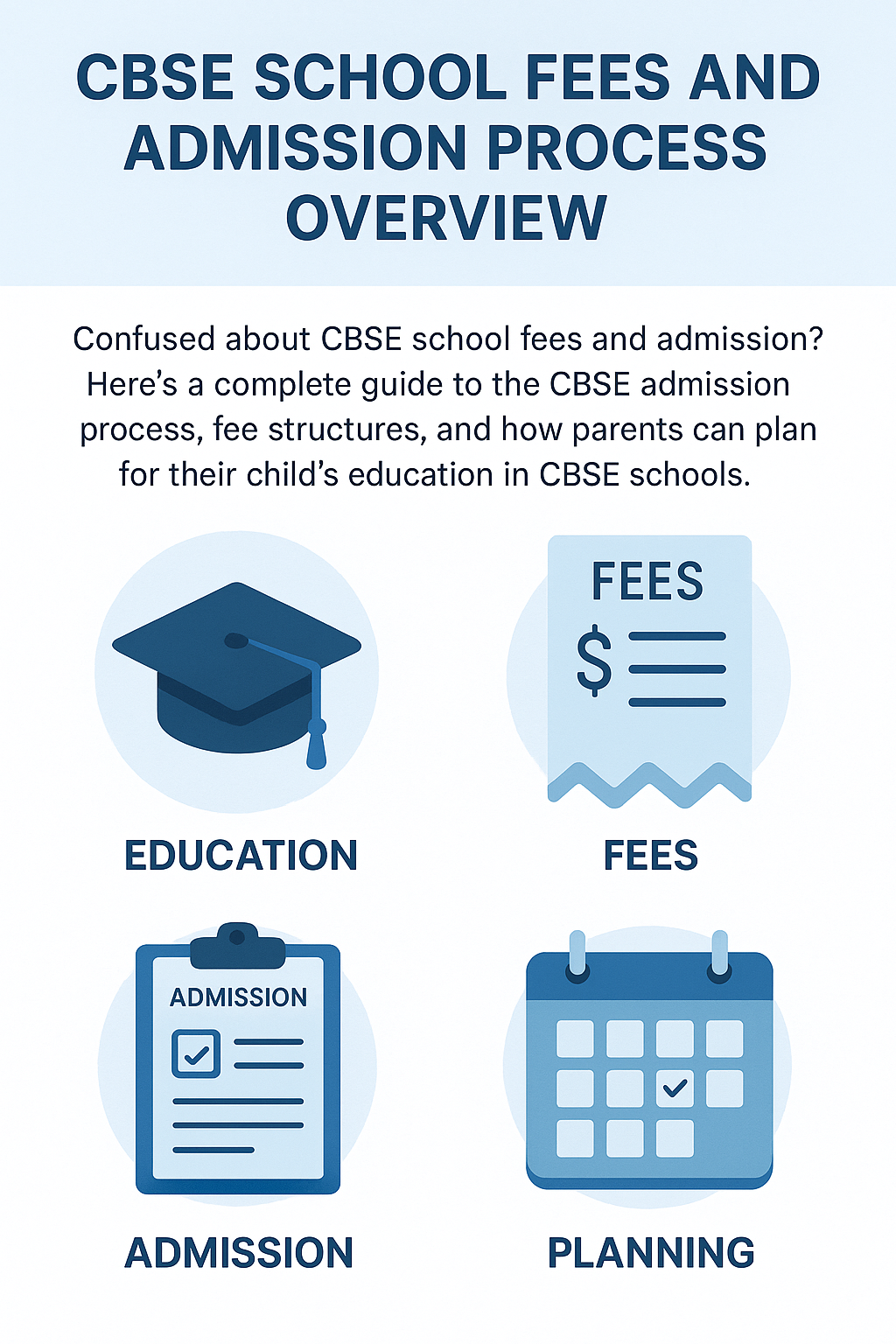
Confused about CBSE school fees and admission? Here’s a complete guide to the CBSE admission process, fee...
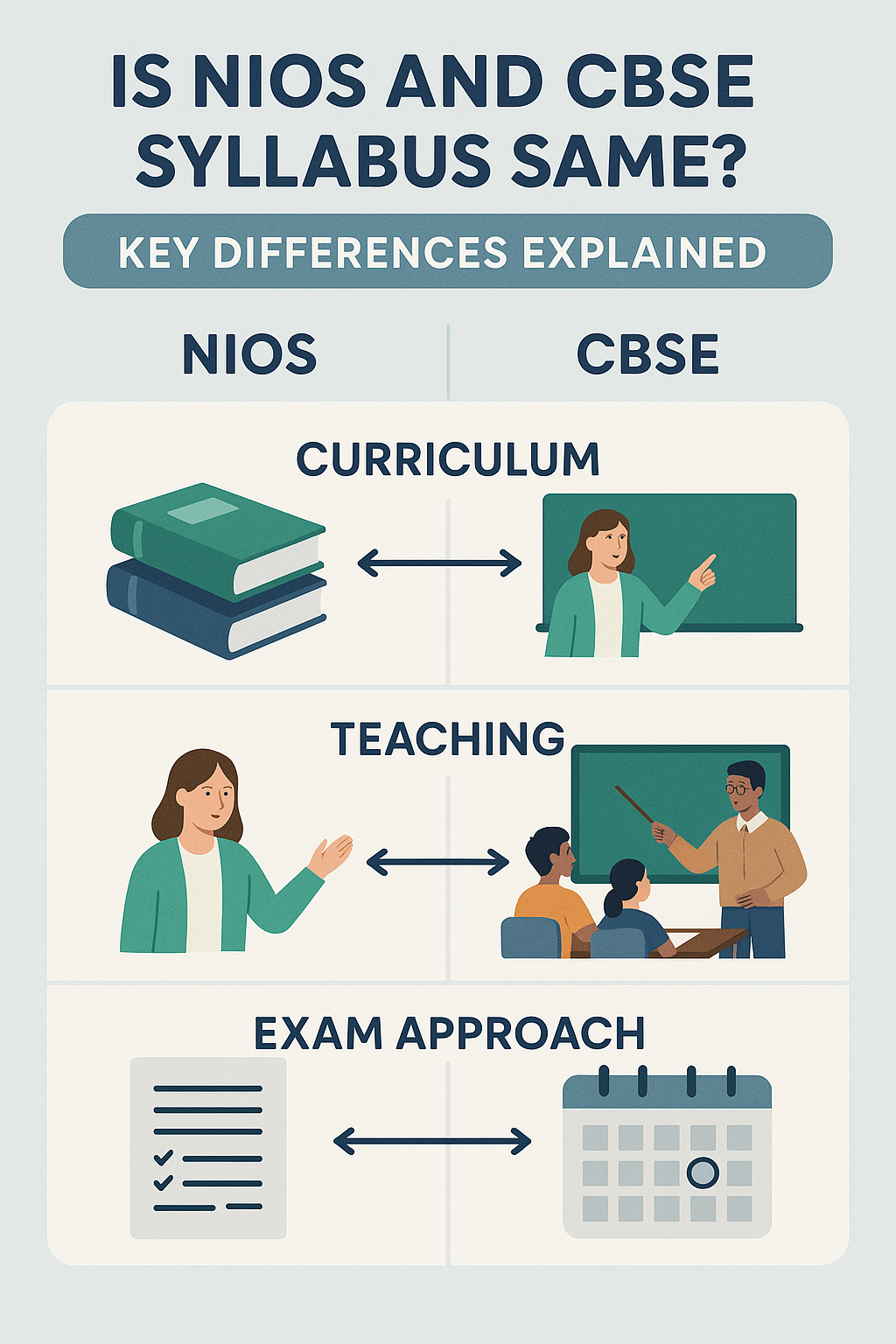
Is NIOS and CBSE syllabus same? Discover the key differences in curriculum, teaching, and exam approach. Learn how...
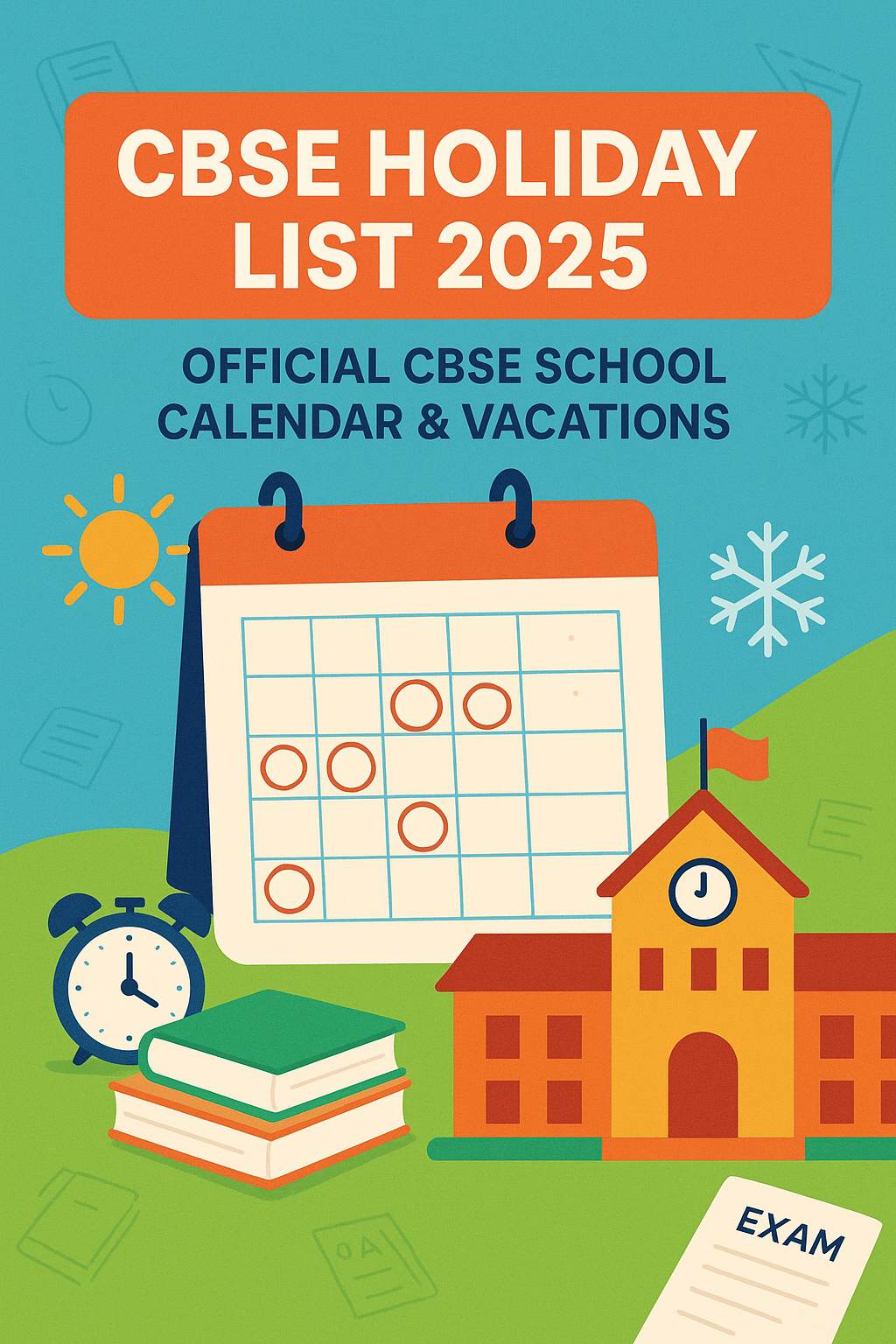
CBSE Holiday List 2025: Explore the official school calendar, national & regional holidays, summer & winter...
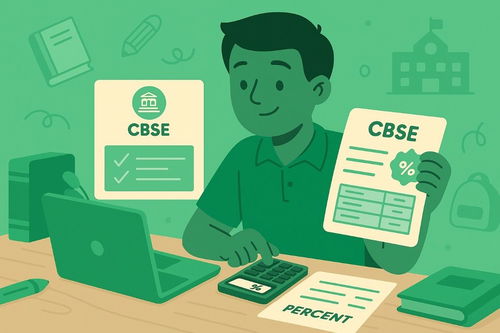
Learn how to calculate your CBSE 12th percentage from your marksheet using the official formula with a simple...
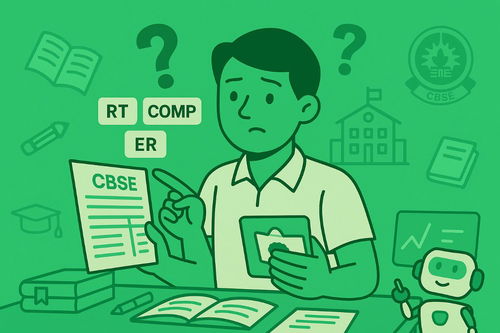
Confused about RT, COMP, and ER on your CBSE marksheet? Learn their meanings, reasons, and what steps you should...
Learn everything about the CTET exam for aspiring CBSE school teachers, including eligibility, syllabus, preparation...

Looking to apply for the CBSE Single Girl Child Scholarship Scheme? Learn eligibility, documents, application steps,...

Discover everything parents and students need to know about the CBSE Class 9 registration process, including...

Learn everything about the CBSE private candidate application process and rules. Understand eligibility,...

Confused about the CBSE answer key? This guide explains how to access it, interpret it, and use it to analyse your...

Confused about how CBSE re-evaluation or re-checking works? This guide explains eligibility, steps, fees, deadlines,...

Discover how to use the CBSE Academics website to access important resources like curriculum, sample papers, and...
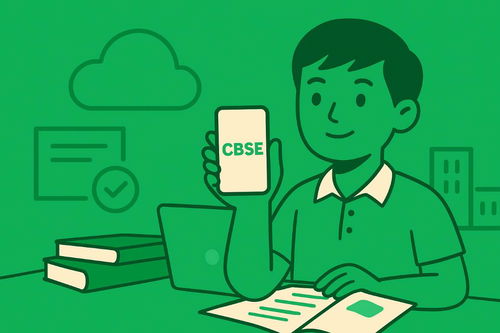
Learn how to easily access your CBSE marksheets and certificates using DigiLocker. This step-by-step guide helps...
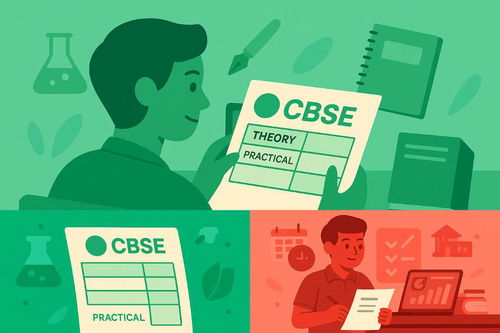
Confused about CBSE passing marks for theory and practical exams? This guide explains the minimum marks needed to...
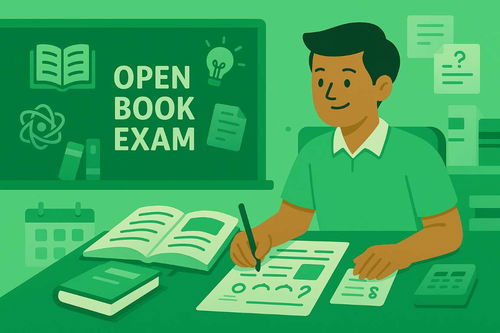
Learn how the CBSE Open Book Exam will be implemented for Class 9 and Class 11 students. Understand the benefits,...
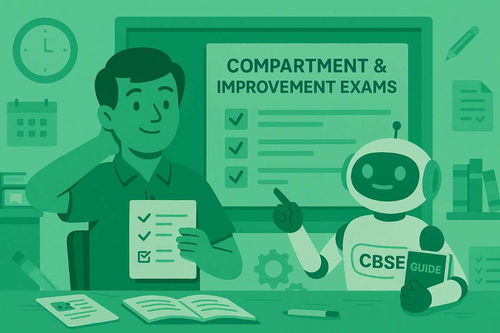
Confused about the CBSE compartment and improvement exam process? This complete guide explains eligibility, how to...
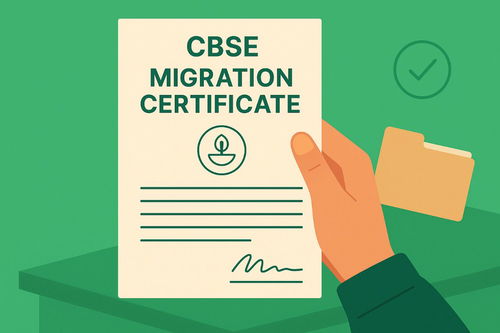
Learn how to obtain your CBSE Migration Certificate after Class 10 or Class 12. This detailed guide walks you...
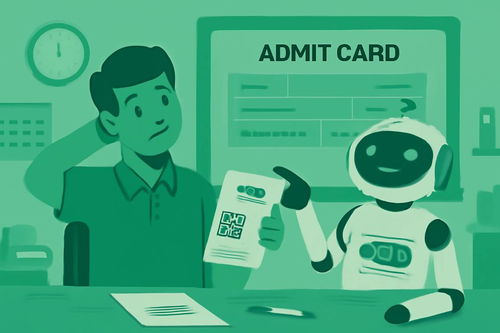
Confused about your CBSE Admit Card? This easy step-by-step guide explains how to download it, what details to...

Discover what CBSE competency-based questions are and learn how to answer them expertly to you ace your exams.

Boost your Class 10 CBSE board prep with sample papers. Learn how to revise smartly, manage time, and score higher...

Learn how to score high in the CBSE curriculum with a subject-by-subject guide, expert tips, and AllRounder.ai tools...

Compare CBSE vs ICSE to choose the best board for your child. Understand syllabus, teaching style, exam prep, fees, and more.

Understand the latest CBSE marking scheme and question paper pattern. Learn about competency-based questions,...

Want to score above 95% in your CBSE Class 10 boards? Our strategy guide breaks down topper study plans to revision...

Compare CBSE vs ICSE to find the best board for NEET and JEE preparation. Understand syllabus match, exam formats,...

Treat your CBSE Class 12 exams using an athlete's approach to help you train, strategize, and perform your best on exam day.

Get ready for your CBSE Class 10 board exams with our survival kit. Find the official syllabus, a smart study...

Learn how to verify CBSE marksheets, certificates, and results online. Step-by-step guide for students and parents...

Master CBSE with top-rated tools, study planners, and expert online help. Perfect guide for Class 9–12 students...

Learn about CBSE – its full form, history, objectives, and structure. Get insights into CBSE’s role in Indian education.
Resources
-
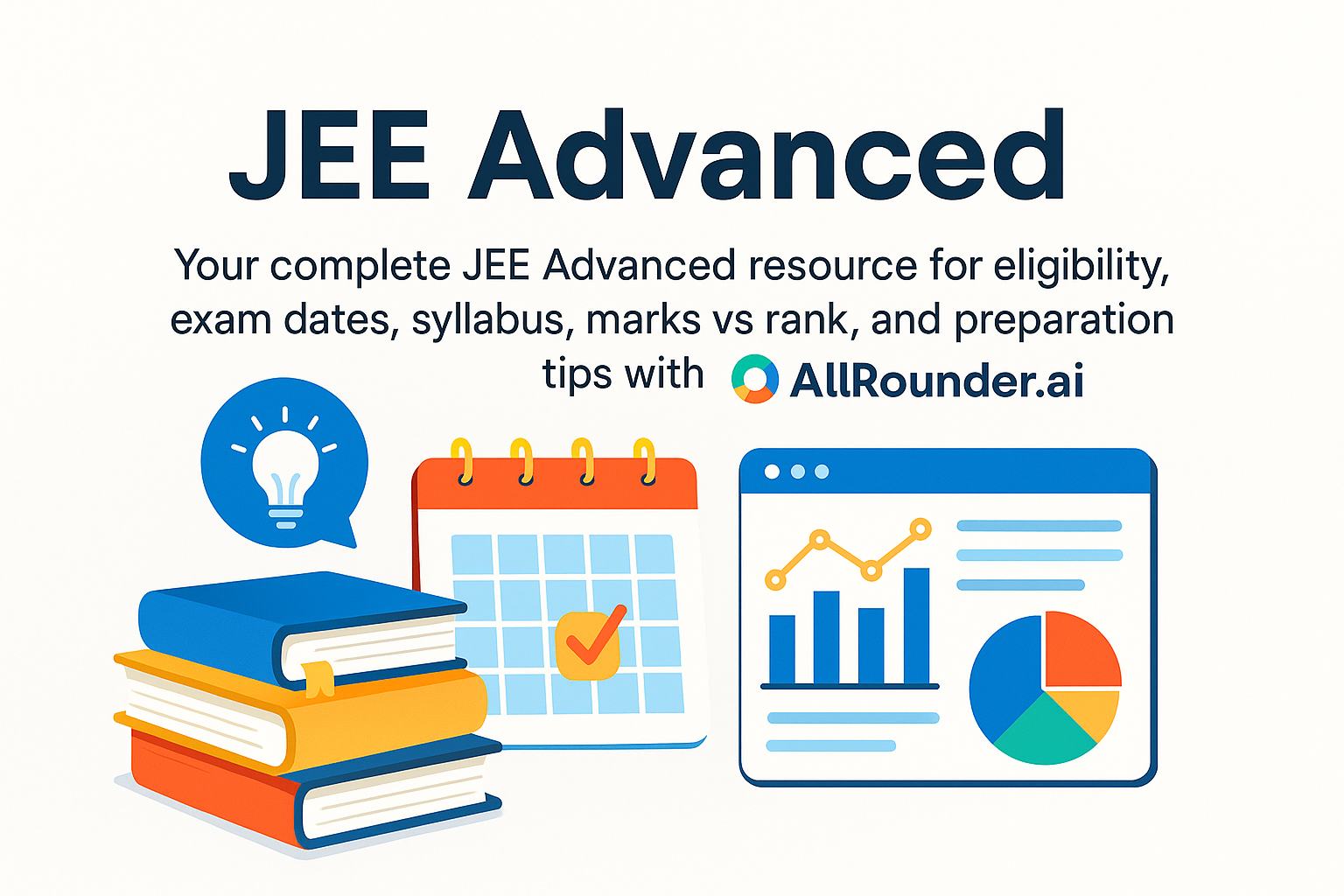
Your complete JEE Advanced resource for eligibility, exam dates, syllabus, marks vs rank, and...
-
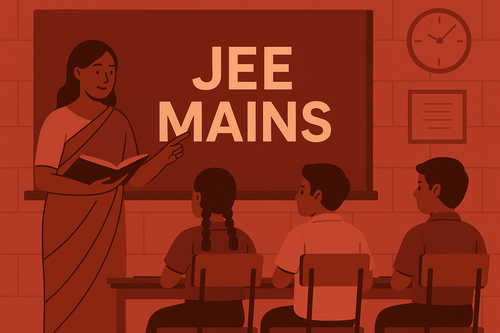
Understand the entire JEE Main process, from application and eligibility rules to the exam...
-

Explore the IB Board – a global curriculum emphasizing holistic, student-centered learning...
-

Learn about CBSE – India’s national school board offering a standardized curriculum, NCERT...
-

Explore everything about the ICSE board – its curriculum, subjects, exam format, and academic...
